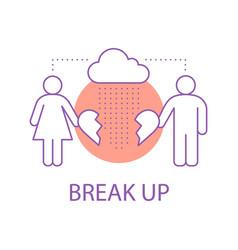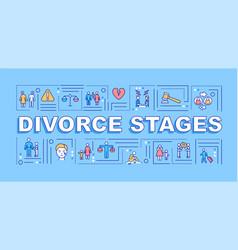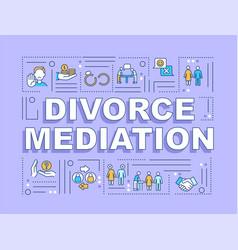THE DOMESTIC ABUSE ACT 2021 DEFINITION AND THE RESULTING LAW

New laws, and the expansion of existing laws, have been enacted to cover more forms of abusive behaviour and provide more legal basis for criminal action against perpetrators. The Domestic Abuse Act 2021 commencement schedule sets out the dates on which the provisions of the Act came into force (last provisions in October 2021.
These include:
- Post-separation abuse has become a criminal offence extending the boundaries of ‘personally connected’ to include ex-partners and family members who do not live together.
- Non-fatal strangulation is a criminal offence, carrying a sentence of 5 years imprisonment.
- Revenge porn – the law been extended to include threats to share intimate images.
- Rough Sex Defence – the use of this defence has been banned by restating in statute law that a person may not consent to the infliction of serious harm and, by extension, are unable to consent to their own death.
- The Domestic Violence Disclosure Scheme also known as ‘Clare’s Law’ is now put on a statutory foundation under the Domestic Abuse Act 2021 – Allowing individuals to contact the police to ask if they or someone they know is in a relationship with someone who could pose an abusive risk towards them.
- Children who reside in a home where domestic abuse takes place are now recognised as victims – Therefore acknowledging that the child is a victim, rather than just a witness.
- Introduced Domestic Abuse Protection Notices and Domestic Abuse Protection Orders which will prevent perpetrators from contacting their victims, as well as force them to take positive steps to change their behaviours e.g., seeking mental health support.
How the act strengthens measures to help victims of domestic abuse within family proceedings?

- The Act has enabled the case of R v Brown to be placed into legislation, removing the deference of consent where the victim suffers serious harm (including actual bodily harm) or is killed.
- Creates a statutory duty on the Local Authority to support victims of domestic abuse by making it necessary that they assess the need for accommodation-based support, prepare and publish a strategy to do so and monitor the effectiveness of the same.
- The Local Authorities are to receive £125 million to make sure safe accommodation spaces such as refuges and shelters can provide victims with the support they need. The Government have pledged to increase funding for victim support services to £185 million a year by 2024/2025 and to fund more than 1,000 independent sexual and domestic violence advisers and 24/7 crisis helplines (Independent, 2022).
- Creates a statutory presumption that complaints of domestic abuse are eligible for special measures such as separate waiting rooms, video link hearings etc.
- The Act now prohibits perpetrators of abuse from cross-examining their victims in person (litigants in person) within family proceedings.
DETAILED CHANGES OF DOMESTIC ABUSE ACT 2021

The key provisions contained in the Act are as follows:
- The Act creates the first statutory definition of domestic abuse which includes not only physical violence but that of emotional, coercive and controlling behaviour and economic abuse. This can be limited to a single event or a series of actions. Children will now be given statutory recognition as “victims” rather than “witnesses” if they see, hear or experience abuse in the home.
- The Act has extended the scope of coercive and controlling behaviour to incorporate abuse post-separation. The offence, initially introduced by the Serious Crime Act 2015, has seen cases increase each year but now the definition will widen the parameters of “personally connected” to include ex-partners and family members who do not live together. This is likely to result in an increase in investigations and prosecutions for this offence.
Further commentary can be found here: Controlling and Coercive Behaviour: Widening the Net
- A statutory presumption is made under the Act, that victims be eligible for special measures in criminal, family and civil courts (for example, to provide evidence via video link). There is now a prohibition on victims of offences being cross-examined by the person who is alleged to have committed the offence against the victim.
- Following release from custody, high risk offenders could now be the subject of polygraph testing as a condition of their licence. Though polygraph testing isn’t 100% accurate, domestic abuse offenders could be subject to regular tests to determine whether they have breached release conditions. Should an individual’s risk be deemed to have increased they could be returned to prison.
See further commentary here: Lie detection tests for convicted domestic abuse offenders is a costly distraction.
- Police have been given new powers to issue civil Domestic Abuse Protection Notices (“DVPN”). These provide victims with immediate protection from offenders and require them to leave the home for up to 48 hours. Magistrates’ courts are now able to issue Domestic Abuse Protection Orders (“DVPO”) following an application by the police. It is suggested that these will prevent domestic abuse offending by enforcing mandatory steps on offenders to change their behaviour such as receiving mental health support. It is estimated that the Police attend more than one million incidents of Domestic Abuse each year, so these powers are expected to be used extensively in replacement of Domestic Violence Protection Orders (“DAPOs”) and Domestic Violence Protection Notices (“DVPNs”). Should individuals breach the conditions of a DAPO they will commit a criminal offence with a maximum penalty of 5 years imprisonment or dealt with by way of a civil penalty as contempt of court.
The Act creates the following:
- A statutory duty is placed on local authorities to ensure victims and their children are placed in refuges and other safe accommodation. All those made homeless by domestic abuse will automatically have ‘priority need’ for homelessness assistance.
- The Act ensures that the guidance supporting the Domestic Violence Disclosure Scheme (“Clare’s law”) is put on a statutory footing. The scheme permits any member of the public to ask the police if they or someone they know is in a relationship with someone that could be abusive towards them. However, in a recent Guardian article it was reported that the 35 day response limit following a ‘right to ask’ request was being missed in 23% of cases.
- The Act creates a new criminal offence of non-fatal strangulation (which includes suffocation). The act of non-fatal strangulation involves the intentional strangling of another person or any other act that affects a person’s breathing and could see offenders face up to 5 years imprisonment.
- It extends the scope of disclosing intimate images without the consent of the individual, also known as ‘revenge porn’, to cover the threat to disclose intimate images with the intent to cause distress. The maximum penalty of 2 years imprisonment remains in place.
- The Act contains a theoretical statutory bar to Defendants raising the defence of consent to serious harm for sexual gratification. The intention of the Act was to provide a clarification of the law on consent following the case of R v Brown [1993] 2 WLR 556. In Brown and associated cases, the Courts have held a person cannot consent to serious assaults, such as occasioning actual bodily harm for public policy reasons. It was argued that the so called ‘rough sex’ defence was being used often by individuals stating the death was caused accidentally during ‘rough sex’ where the victim consented and that this amendment was required to address. However, it remains to be seen whether this amendment has had the effect that it was intended to.
- A new Domestic Abuse Commissioner role was created and is the first of its kind. Nicola Jacobs, who has taken on this role indicated that the legislation won’t transform things overnight, that there is more to do and so she will be advocating for further change
Domestic Abuse Commissioner calls for more support for abuse victims.
A new report has revealed that 89 per cent of domestic abuse survivors don’t get any support when they go through the family courts.
The report was prepared by SafeLives, a UK-wide charity dedicated to ending domestic abuse, and commissioned by the Domestic Abuse Commissioner Nicole Jacobs, an independent voice who speaks on behalf of abuse victims and survivors.
The aim of the report was to shine a spotlight on the support victims and survivors of domestic abuse receive in both the criminal and family justice system. As part of its work SafeLives carried out a survey of abuse victims and survivors who had been through the court process.
The report follows a Government report last year into how the family court protects children and parents in private law children cases involving domestic abuse. That report found that domestic abuse victims and their children were being failed and were being placed at risk of further harm by the family courts system, and recommended that as a matter of course Independent Domestic Abuse Advisors (‘IDVAs’), who support and guide domestic abuse victims through the justice system, be allowed to accompany the party they are supporting into court. The SafeLives report made a number of key findings, and set out recommendations for change
Key findings
Key findings of those surveyed as part of the report included that:
- Almost 90 per cent of domestic abuse victims don’t get any support through the family courts.
- One in five IDVAs is blocked from entering the courts. This was partly because perpetrators did not want them to be included or they were prohibited from entering proceedings by court officials including judges.
- The impact of the pandemic will be felt by survivors and services for years to come – 67 per cent of services said they had noticed an increase in case length since Covid and backlogs are running into at least 2022.
- The single most commonly cited intervention that improved survivors’ experience of going through the courts was dedicated court domestic abuse support, yet there are still very few IDVAs who specialise in the family courts or criminal justice system.
One abuse survivor told researchers: “The Family Court process has left me severely traumatised, worse than the DV [domestic violence] itself. I was belittled, undermined, exposed to my abusive ex repeatedly, my children were not listened to and it felt like father’s rights trumped mine and negated his history of DV. I’ve never been more frightened and alone in my life.
Recommendations from the Domestic Abuse Commissioner
The recommendations contained in the report included:
- The need for urgent action on court backlogs and increased long-term investment.
- Recognising the role of IDVAs as an integral part of court systems.
- Realising ‘trauma-informed’ courts and cultural change training for all professionals
- Better strategic support, coordination and understanding of sexual violence.
Responding to the report, the Domestic Abuse Commissioner called for urgent long-term funding and more court support for victims of abuse.
She said: “This report comes at a time when there have been significant falls in prosecutions of domestic abuse in the criminal courts, and serious failings acknowledged by Government around the treatment of survivors and their children in the family courts.
“Survivors going through the courts also continue to be impacted by the delays caused by the Covid pandemic and will be for some years to come. In this most difficult of contexts, the changes we are calling for cannot come fast enough.” She went on: “I am extremely concerned that so few victims who are going through the family courts are getting any support at all. The kind of cases that go through the family courts are often highly emotional and usually linked to child custody cases. This must change as a matter of urgency.”
(DAPP) Domestic Abuse Perpetrator Programme>
DAPP facilitates and promotes change for male perpetrators of domestic abuse within intimate relationships. The DAPP team also work with the victims of the perpetrators on the programme.

What is DAPP?
DAPP stands for Domestic Abuse Perpetrator Programme (also referred to as Domestic Abuse Prevention Programme). It is a 17 week programme that seeks to increase the safety of women and children, and the quality of life of everyone in the family, by working with men who recognise that they have been abusive towards an intimate female partner and who want to stop that behaviour. Domestic abuse includes physical violence, emotional abuse, or any other form of coercive control. The programme runs alongside one-to-one support sessions to ensure men are offered a robust intervention.
RESPECT, the National Association for Domestic Abuse Perpetrator Programmes and Associated Support normally provide accreditation. The DAPP is open to men aged 18 and over from any ethnicity or religious background.
How long is the programme?
The programme starts with one initial ‘Suitability Assessment’ meeting which lasts between 2-4 hours. Occasionally a second follow-up meeting may be required depending on the organisation providing DAPP.This is followed by three weekly ‘Pre-Group’ sessions which are 2.5 hours long each. You will then complete 14 weekly ‘Core Group’ sessions which are also 2.5 hours long each.
A brief outline of what happens at DAPP:
During the programme, participants will cover:
- The damaging effects of blaming others for their behaviour and how to stop doing it
- The wide range of impacts of abusive and controlling behaviour in intimate relationships.
- The (sometimes hidden) impact on children of a father’s abusive behaviour
- How to be less reactive and prevent the actions of others affecting the choices they make
- How arguments escalate and how to prevent escalation
- How to recognise and stop abusive or controlling behaviour before it happens
- How to avoid being trapped in destructive or repetitive patterns of negative thinking
- How to know themselves better so they can stay calm
- How to take appropriate ‘time outs’
- How to negotiate more effectively in a relationship
OUTCOMES
Research into RESPECT accredited programmes (like the DAPP) shows that most women and children feel significant improvements in their sense of safety after the man completed a programme of this type. This research also shows most women who had experienced sexual or physical violence from their partner stated that this violence had stopped after the programme.
Men who have engaged fully with the programme by attending all the sessions and participating with full honesty have told us they feel a great benefit from the practical skills and fresh perspective they have learned.
These skills and personal insights appear to improve their experience of life and can help them regain contact with their loved ones and build a safer environment for them.
Men also report they have experienced significant encouragement and support from meeting and talking with other men, helping them see they are not alone in their struggle and that progress and change is not only possible but is merely a matter of making better and more informed choices.
Other intervention services:
The DAPP Service also facilitate other different types of intervention as and when funding is available to roll out different types of Programmes to fully encapsulate the broad spectrum of risk and types of Domestic Abuse.
Yorkshire Children’s Centre (YCC) are currently facilitating a DAPP 17 Week RESPECT Accredited programme to the Urdu and Punjabi speaking community. This is delivered by dual speaking facilitators, which also captures the complex issues of domestic abuse attached to some cultural beliefs held by perpetrators within this community.
The additional services will be updated on the site when available with details on how to access these.
THE DIVORCE, DISSOLUTION AND SEPARATION ACT 2020

No-fault divorce came into force on 6 April 2022
The Divorce, Dissolution and Separation Act 2020 reforms the divorce process to remove the concept of fault. Many legal professionals felt that divorce law was out of date, particularly following the 2018 Owens v Owens case. The act was passed in June 2020 and came into force on 6 April 2022.
What is No-Fault Divorce?

As of April 6, 2022, no-fault divorce became legal in England and Wales. In a no-fault divorce, couples can end their marriages or civil partnerships without blaming each other for failing to maintain their relationship. No-fault divorce is notable for eliminating guilt and blame from the process.
What is the Process for No-Fault Divorce?

With the new law, divorces are streamlined, and there is no longer an option of contesting them. No-fault divorce also eliminates the necessity of choosing among the five causes of divorce. A no-fault divorce follows the following fundamental changes.
Divorce can be an emotional process and it is important to seek support from professionals and any other support services.

- Both or any of the parties to a marriage or civil partnership may request a divorce. The only irreversible breakdown can lead to the dissolution of a marriage. The applicant must state that the marriage has irreversibly broken down to file for divorce. Parties can file a combined application with the court. To grant a divorce, the court must accept the statement as conclusive proof that the marriage has irreversibly broken down. No party can object to the application. Divorce begins with a conditional order, called a decree nisi in the past.
- The divorcing couple must affirm their desire to proceed with the divorce before a conditional order can be issued. The confirmation can only be given after at least 20 weeks have passed since the start of the proceedings. This is to provide the applicant or applicants with a chance to reflect on their decision to divorce. Throughout these 20 weeks, couples should try to agree on child custody and financial settlements. The conditional order has the option of becoming a final order after a minimum of six weeks.
The alternative is to go for divorce mediation if there is no domestic abuse allegations.

Here are some useful links:
https://www.
https://thefma.co.uk/find-a-
https://www.nfm.org.uk/about-
https://miams.co.uk/contact/
This part is for Muslim sisters who are unable or choosing to remain anonymous and wish to seek help and/or guidance regarding their marital problems (divorce, mahr (nuptial gift), issues relating to Shari’a Councils, Mosques, religious scholars, divorce, domestic violence, gender-based crime, marital captivity, shari’a in general and issues relating to women, forced marriages.
